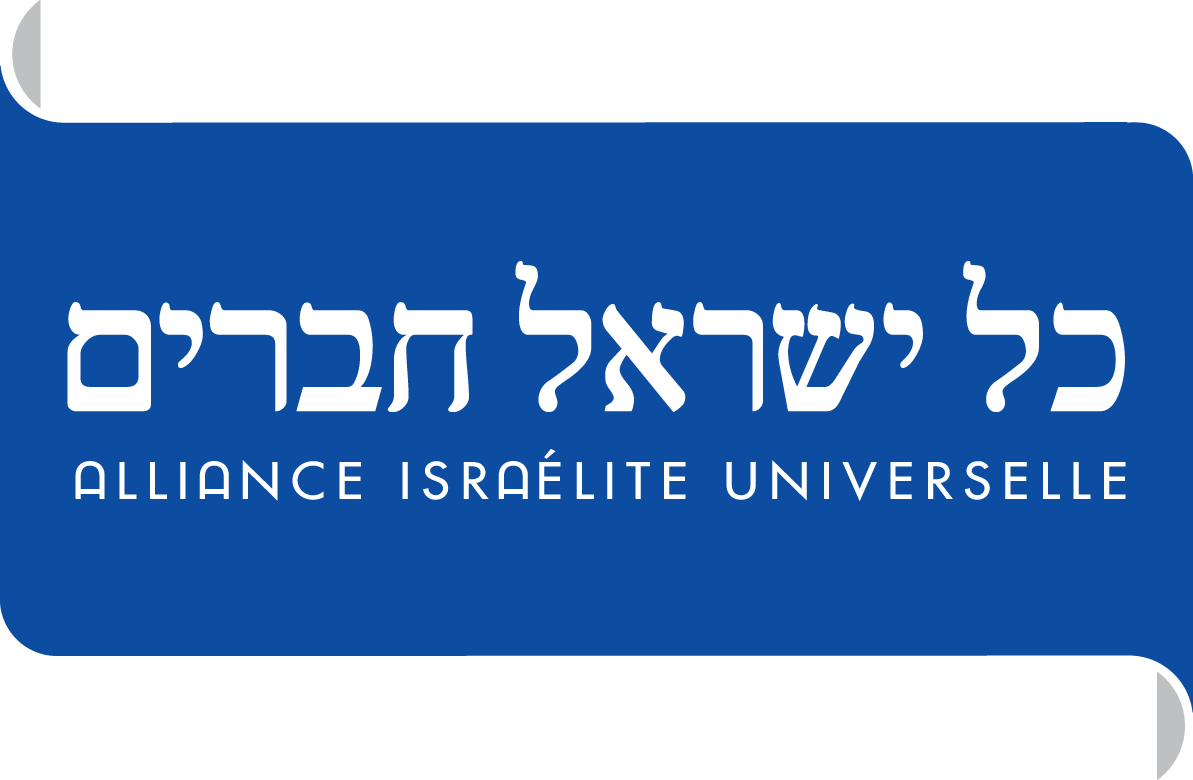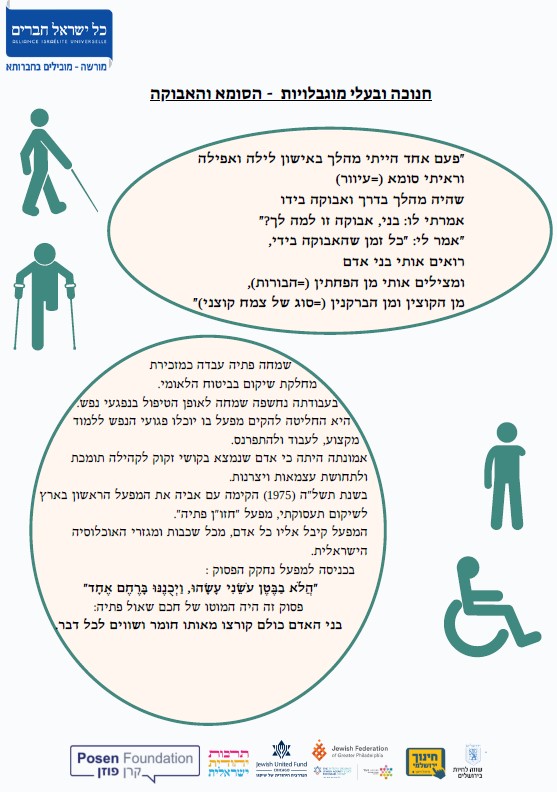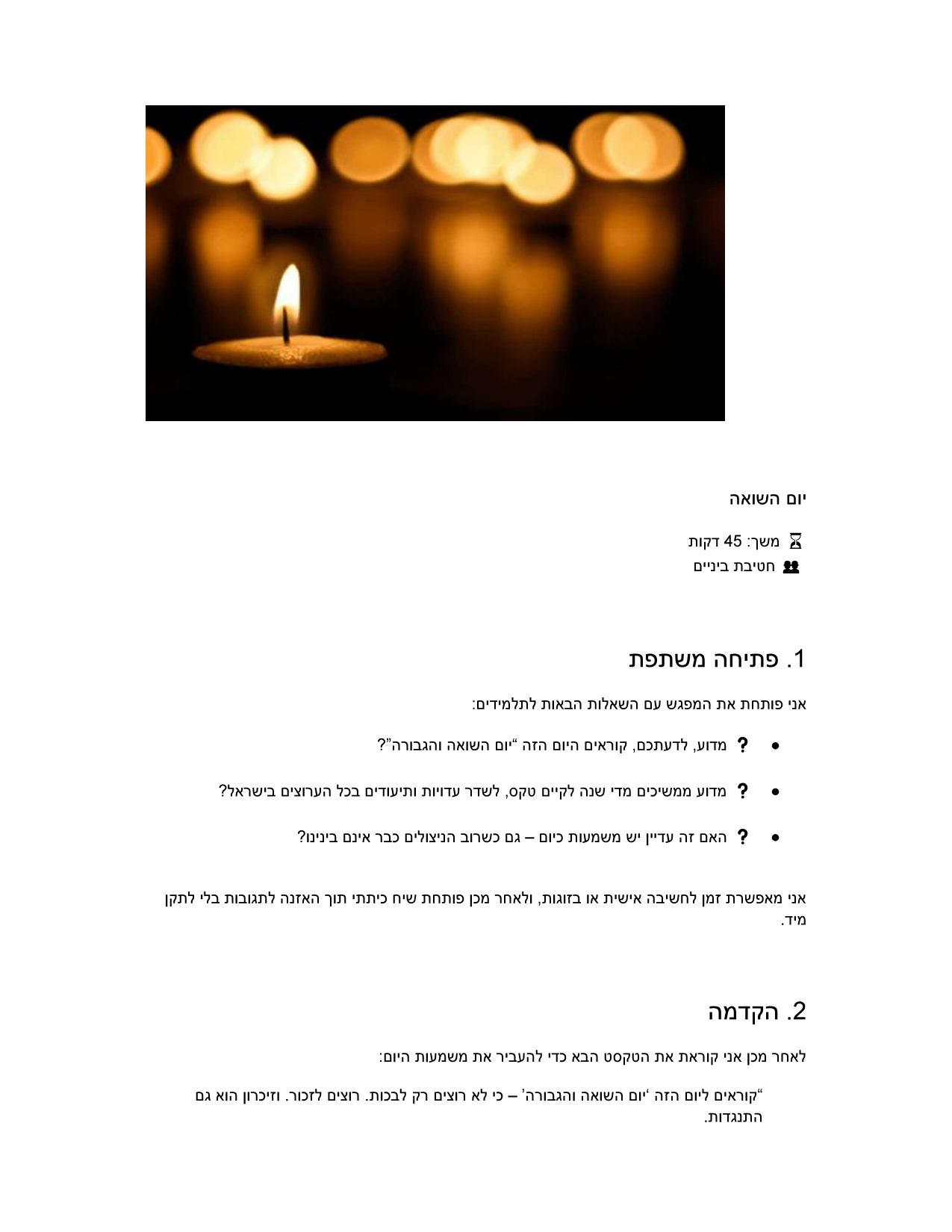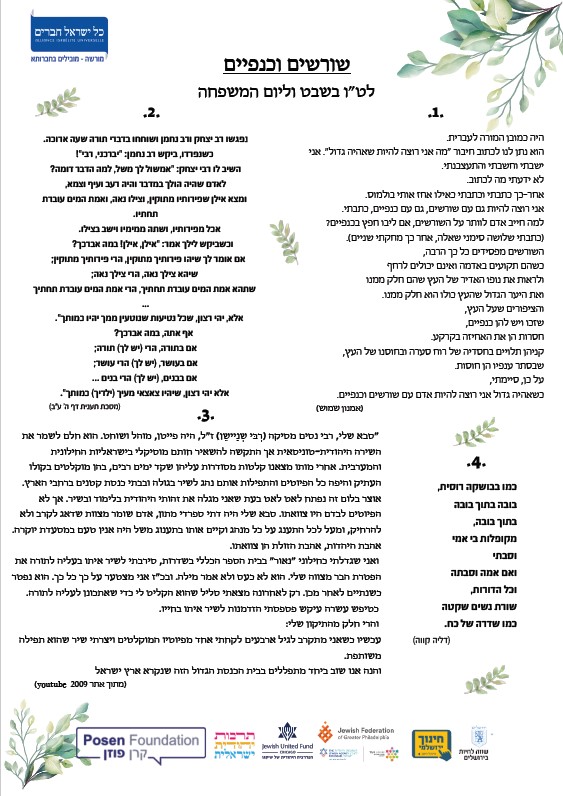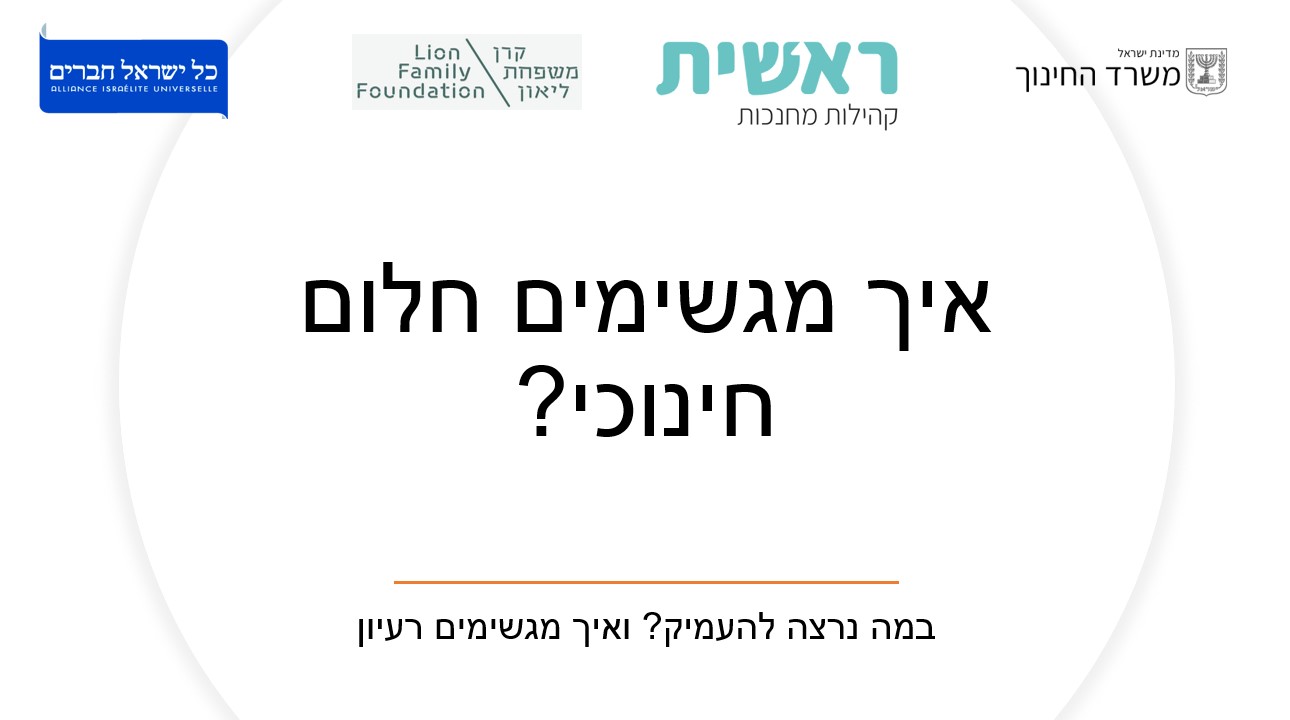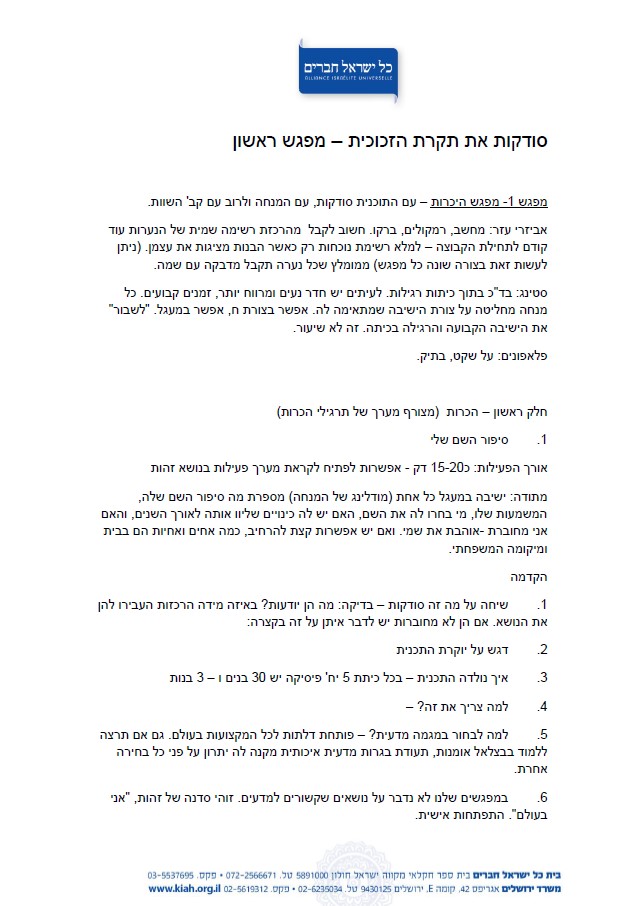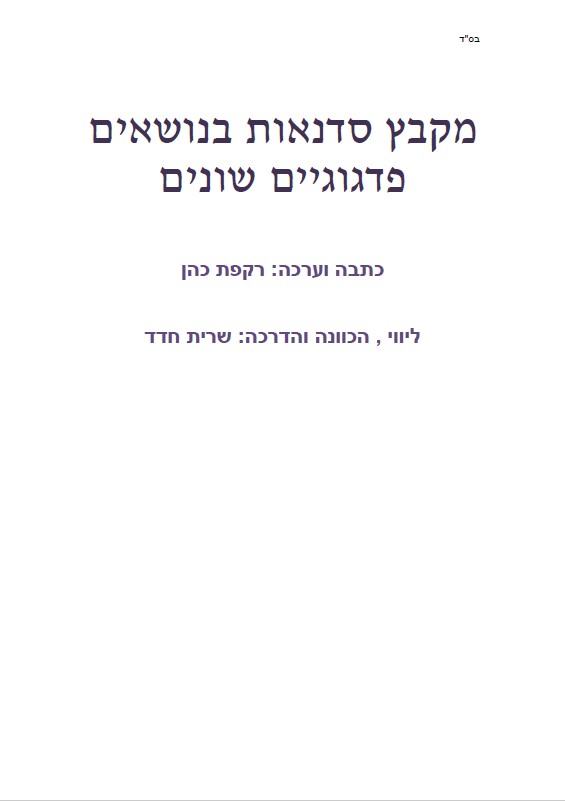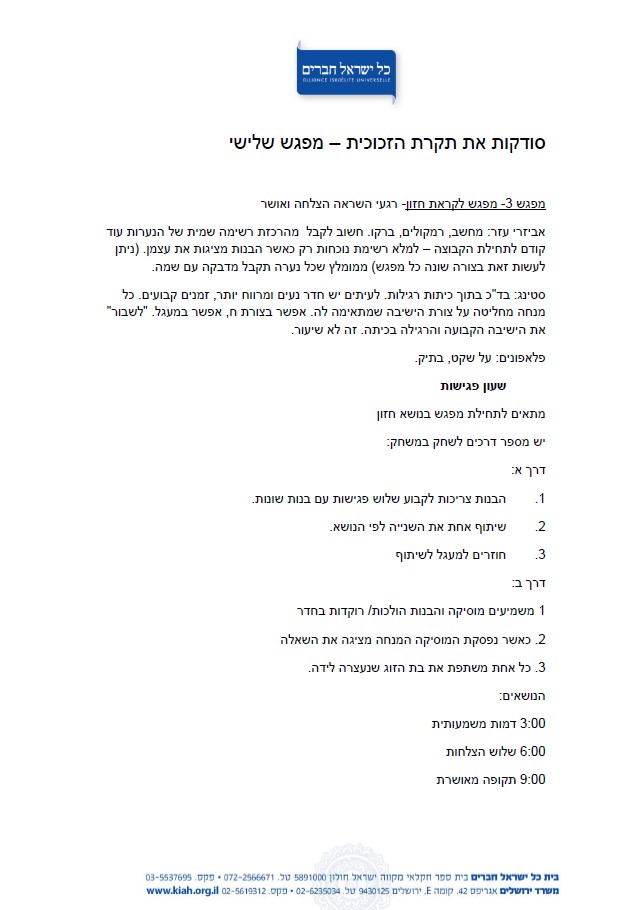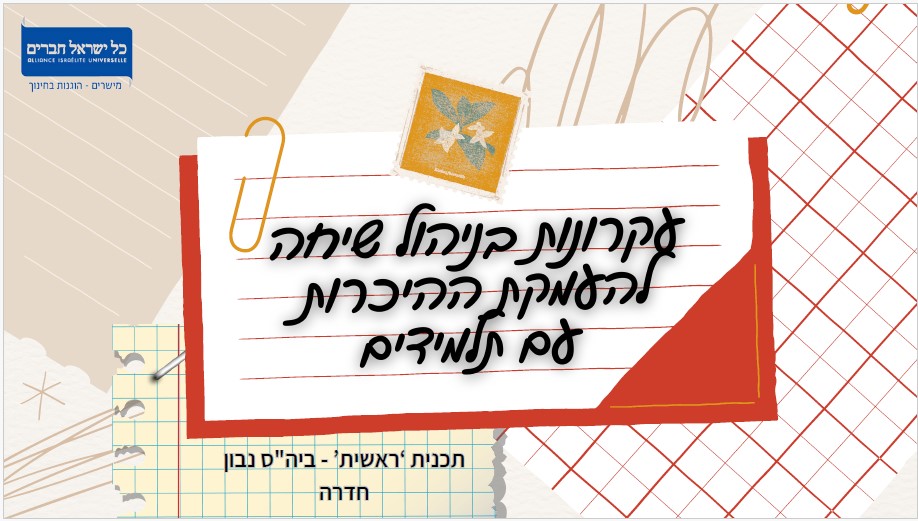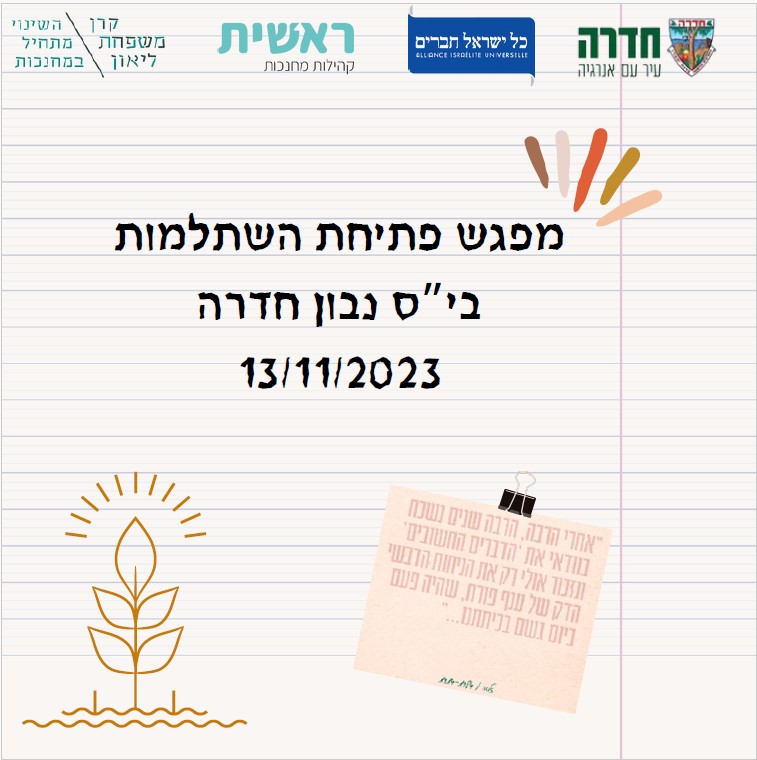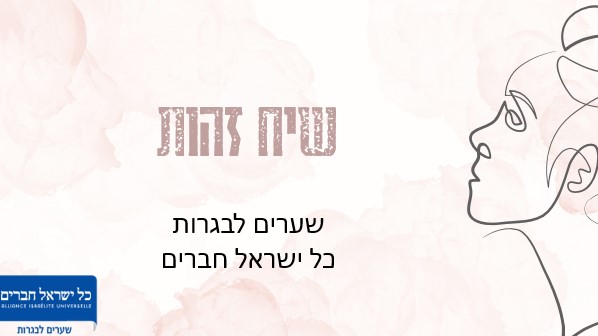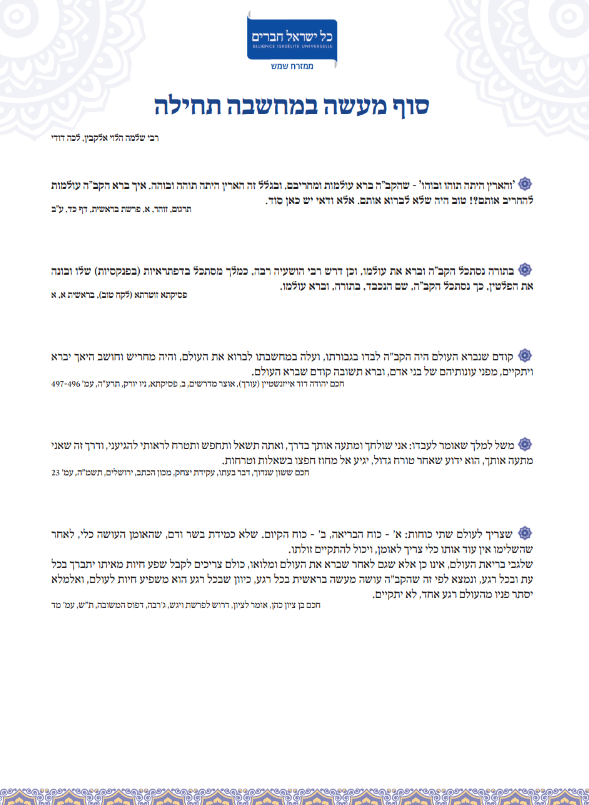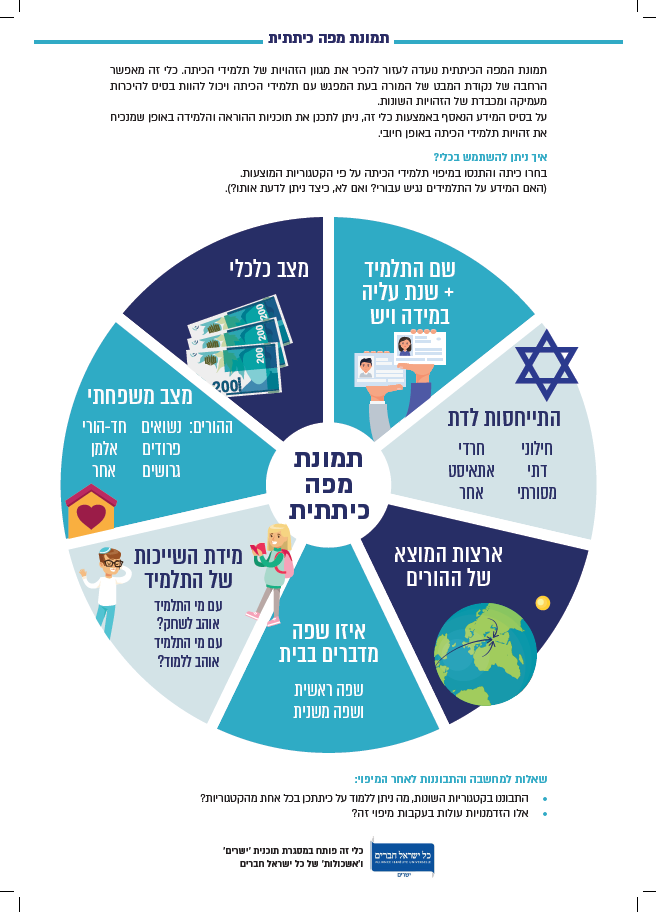Facilitators and coordinators
Sort by topic
Disability Equality Day
Lesson plan
Designed for:
Middle school, high school
- carrier: Morasha
Activities around Disability Equality Day, on the topic of responsibility and awareness of the connection between people with and without disabilities.
Holocaust and Heroism Day activities
Lesson plan
Designed for:
Middle school, seminaries
- carrier: Israeli Jewry, leaf
An activity set for Holocaust and Heroism Day. The activity is intended for middle school students who immigrated from France. The set includes an opening activity, questions for discussion, a reading passage, and suggestions for community activities.
Tu B'Shvat and Family Day – Roots and Wings
Lesson plan
Designed for:
Middle school, high school
- carrier: Morasha
A set of activities and learning around sources that deal with the connection between the Tu B'Shvat period and Family Day. Excerpts of poetry, midrash, and readings combined with activity cards that stimulate discussion and sharing on the subject of family identity, values, and tradition.
How do you fulfill an educational dream?
Teacher training
Designed for:
Teachers
- carrier: Reshit
The goals of the meeting are to provide the educator with a model for realizing an educational dream, to map her roles and to choose the topics for the annual work. This meeting will examine the many roles of the educator and her level of satisfaction in each of the areas. Later, there will be work in teams to focus on topics and goals for this year. Finally, learning the 5 keys – a model for starting an idea and turning it into reality.
I am in the world workshop
Lesson plan
Designed for:
Upper division
- carrier: Sodkot
Introduction workshop setup – I am in the world.
Workshop booklet – Gateways to Matriculation
Lesson plan
Designed for:
Teachers
- carrier: Gateway to Graduation
A collection of workshops on pedagogical topics – lesson plans, information slides, training, and activity cards.
Moments of Success and Inspiration Workshop
Lesson plan
Designed for:
Upper division
- carrier: Sodkot
A lesson plan on moments of success and inspiration.
Principles for talking with students
Teacher training
Designed for:
Teachers
- carrier: Reshit
In this meeting, we will offer personal conversations with students as an opportunity to deepen our acquaintance. The goals of the meeting are to deepen our acquaintance within the community of educators and to learn principles for having personal conversations with students.
Introduction meeting with the educators
Teacher training
Designed for:
Teachers
- carrier: Reshit
An opening meeting with the group of educators, the purpose of which is to introduce the participants and the program, as well as to coordinate expectations for the continuation of the meetings.
Identity Discourse – For Coordinators
activation
Designed for:
- carrier: Gateway to Graduation
A presentation to open the year, with various activities for the coordinators, aimed at connecting the discourse of identity to the issue of excellence.
End of action with forethought
Lesson plan
Designed for:
Seminaries, communities
- carrier: Memizrach Shemesh
Social projects are the main way for organizations or social activists to lead social change. Each project is built on an idea, belief and/or perception that the project leaders assume that if they are realized, change will occur. There are different ways to approach project implementation, some of which advocate careful planning of the project in advance and following its lead, some of which involve trial and error, some of which suggest trying to raise possible failures and try to solve them in advance, and some of which suggest starting to encounter the failures in the field and starting over. The way in which one chooses to approach a project may have a significant impact on its success and the effect it will produce. Setting goals and objectives for the project will allow one to choose an appropriate way to approach it.
Class map image
Teacher training
Designed for:
Teachers
- carrier: Mesharim
The classroom map image is designed to help recognize the diverse identities of the students in the classroom. This tool allows for a broadening of the teacher's perspective when meeting with the students in the classroom and can serve as a basis for a deep and respectful acquaintance with the different identities. Based on the information collected through this tool, teaching and learning programs can be planned in a way that positively emphasizes the identities of the students in the classroom.
